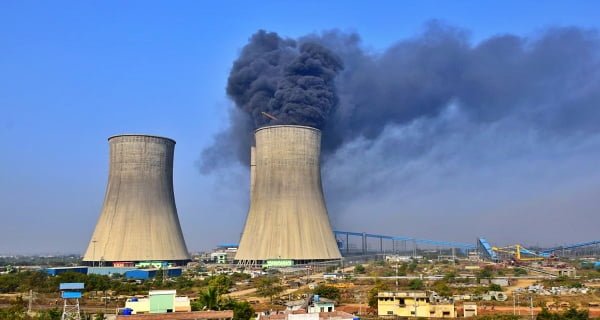
New Delhi: India plans to expand its coal fleet to 64 gigawatts and if it does so, it could be premature in the next decade due to air pollution caused by coal in Delhi, a new study has claimed. The death toll will almost double to 5,280.
In addition to premature deaths, the current expansion could lead to 8,360 premature births over the next decade, the report ‘C40 Cities’, a network of the world’s megacities committed to addressing climate change issues, claimed. and can cause 10,310 emergency cases of asthma. Twelve percent of India’s coal-fired electricity is generated within 500 kilometers of the national capital.
The study said that if the current proposed expansion of coal capacity takes place, the risk of air pollution from coal power plants in Delhi could result in about 5.5 million sick days. The economic health cost associated with coal pollution in Delhi is estimated at $8.4 billion in the coming decade. One billion equals 100 crores.

It said, “Air pollution (PM2.5 annual concentration) in Delhi is nine times higher than the World Health Organization (WHO) guidelines, and more than twice the national guideline. Current national plans will expand the coal fleet by 28 percent between 2020 and 2030 and will not reduce it by 20 percent, threatening the health and well-being of urban residents in Delhi while impacting India’s climate and air quality targets. “
“Current national plans could almost double the number of annual premature deaths caused by air pollution from coal power plants in the city,” said Dr. Rachel Huxley, head of research at C40. The study also highlights how shutting down coal plants will save lives, reduce costs and create employment opportunities in Delhi.
Shruti Narayan, regional director for South and West Asia, C40, said, “The transition to clean energy is not only important for Indian cities to reduce air pollution, improve the health of their residents and meet their climate goals, Which is linked to the Paris Agreement, but also to create jobs.”





















































